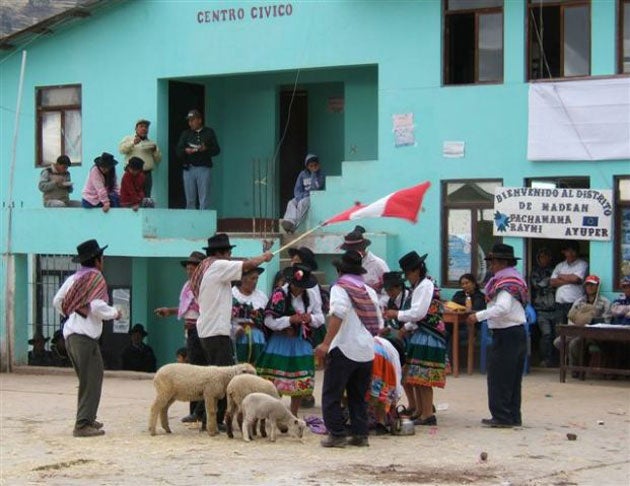Your support helps us to tell the story
From reproductive rights to climate change to Big Tech, The Independent is on the ground when the story is developing. Whether it's investigating the financials of Elon Musk's pro-Trump PAC or producing our latest documentary, 'The A Word', which shines a light on the American women fighting for reproductive rights, we know how important it is to parse out the facts from the messaging.
At such a critical moment in US history, we need reporters on the ground. Your donation allows us to keep sending journalists to speak to both sides of the story.
The Independent is trusted by Americans across the entire political spectrum. And unlike many other quality news outlets, we choose not to lock Americans out of our reporting and analysis with paywalls. We believe quality journalism should be available to everyone, paid for by those who can afford it.
Your support makes all the difference.The solo violin played the repetitive, driving theme of the Chacatán to which the dancers of La Florida stamped and turned in the plaza of the village of Madeán. The women wore multicoloured skirts with a broad, floral hem and all – men and women – had bright llicllas (shawls) across the shoulder and trilby hats. Also in the group were three lambs who clearly didn't know the steps and hindered the flow of the dance.
After a while, a huddle formed over the lambs, while the dance continued around it. The animals were wrapped in a green blanket and, under its cover, appeared to be having some hidden indignity performed upon them.
"Oh yes," said our companion, Josué, "it's a blood sacrifice. One of the lambs will be killed." But we counted three lambs into the blanket and we counted three out, emerging with their ears pierced and tassles tied in the bleeding holes: the red and white flag of Peru for the rams, multicoloured for the ewes.
As the violinist and the dancers continued their performance, one woman veered off in my direction. "Join us," she insisted. Then a man pulled Sarah in, so into the plaza we went, providing entertainment for all.
Madeá*and four neighbouring communities hold competitive concursos every two months or so. They are funded by the NGO Pachamama Raymi to prevent the loss of local dances and music. In spite of – or maybe because of – the gringo ringers in their group, La Florida's Chacatá*won that Sunday's 1,500 sol (£300) prize. Sarah, a dancer in her youth, would have been an asset, but for someone whose efforts at Scottish dancing have been described as utterly useless, to be on the winning side was nothing short of a miracle.
Footprint's Peru Handbook is available now (£15.99), footprintbooks.com

Join our commenting forum
Join thought-provoking conversations, follow other Independent readers and see their replies
Comments